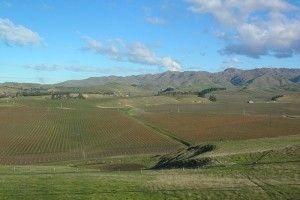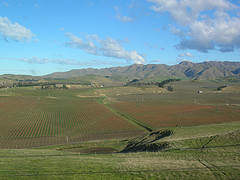Award-winning scientist criticises export of agricultural emissions
Detlef Schulze, winner of the highest environmental sciences award in Germany – the Deutsche Umweltpreis, criticised European agricultural imports at a Royal Society event on reducing greenhouse gas emissions from agriculture. He believes these imports mean emissions are exported elsewhere.

 Professor E-Detlef Schulze, a contributer to the IPCC’s 2007 Nobel Peace Prize, criticised Europe’s agricultural imports during a discussion meeting at the Royal Society on reducing greenhouse gas emissions from agriculture yesterday (Tuesday 1st March).
Professor E-Detlef Schulze, a contributer to the IPCC’s 2007 Nobel Peace Prize, criticised Europe’s agricultural imports during a discussion meeting at the Royal Society on reducing greenhouse gas emissions from agriculture yesterday (Tuesday 1st March).
Schulze, a biogeochemist at Germany’s respected Max-Planck Institute, believes we need better mapping of the carbon flow between countries caused by agriculture as we currently see with industrial trade.
“We need it in future to deal with imports and exports…the net greenhouse budget of Europe is almost zero – we’re doing quite well at the moment – if we add to this the industrial imports and the known agricultural imports then we would add up as a huge emitter,” said Schulze.
Earlier in the day Lord Krebs, chair of the Adaptation Sub-Committee of the UK Committee on Climate Change, highlighted emissions from agriculture as being “particularly difficult” to reduce partly because an “easy way to achieve reductions would be to export the problem”.
According to Krebs, “already 25 per cent of greenhouse gas emissions in the food chain come from net trade” – imported food minus any exports.
Schulze told Climate Action he believes people are eating too much and called for a reduction in agricultural imports.
“I would say the first switch I would put on is let’s eat less - nobody would suffer in England if you were to eat 20 per cent less.”
The excessive “desire” for food as opposed to a “need” has an environmental footprint in the countries we import the food from, he said, hence the problem is exported.
According to the UN Food and Agriculture Organisation, in the last decade deforestation occurred at an average rate of 13 million hectares a year - mainly to clear land for agriculture.
“Then you have the whole health problem, how many people are deathly ill because of eating too much,” he added.
Schulze also noted that these imported food supplies have other impacts such as “huge amounts of waste”.
His answer to the question of agriculture and its impact on climate change – “I would say having less intensive agriculture and a bit less consumption would mitigate climate change much more than having this so called 'sustainable intensification'.”
This was something the Royal Society called for in 2009 as a way to increase yields without adverse impacts on the environment.
But Schulze does not believe yields should be increased, at least not in the developed world.
For further information:
Reducing greenhouse gas emissions from agriculture – Royal Society event
Royal Society report (2009) – Reaping the Benefits
UK Committee on Climate Change
Image: Lynda W1 | Flickr






